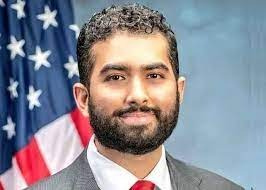Russian rejection marks the end of a UN assistance mission in Syria that was located in Turkey
After blocking a nine-month permission extension at the UN Security Council on Tuesday, Russia gave the impression that a long-running United Nations humanitarian operation in Turkey that had been providing supplies to 4 million people in rebel-held northwest Syria was coming to an end.
Then, Russia’s own attempt to extend the mission, which has been providing help including food, medication, and shelter since 2014, for another six months was unsuccessful. On Monday, the Security Council’s authorization to send the help came to an end.
Vassily Nebenzia, the ambassador of Russia to the United Nations, stated that the council’s authorization of the relief effort was hopeless.
Before the council voted on Russia’s six-month proposal, Nebenzia used his veto and said, “If our approach is not approved, then we can simply go ahead and terminate the cross-border mechanism.
“The technical rollover, for any period of time, we’re not going to accept,” he said.
The United States will continue to negotiate with all council members to restart the humanitarian operation, according to U.S. Ambassador Linda Thomas-Greenfield, who also asked Russia to change its mind.
Antonio Guterres, the secretary-general of the U.N., had pressed for a 12-month extension.
As a result of the council’s failure to come to a consensus, Guterres expressed disappointment and urged members to “redouble their efforts to support the continued delivery of cross-border assistance to millions of people in dire need in northwest Syria for the longest possible period.”
Because the Syrian government in Damascus, which has strong relations to Moscow, refused to approve the U.N. operation on the basis of sovereignty, authorization is required. Votes on the matter by the Security Council have historically been divisive; in both 2022 and 2020, the mandate expired only to be extended a day later.
In 2014, the Security Council first approved humanitarian delivery from Iraq, Jordan, and two locations in Turkey into Syria’s opposition-held regions. But it has been reduced to just one Turkish border post thanks to Russia and China.
Aid organisations criticised the deadlock in the Security Council.
Absolute cruelty
The assistance operation, according to Russia and Syria, undermines Syria’s territorial integrity and sovereignty. They argue that more help should be distributed domestically, which incites opposition worries that food and other aid may come under government control.
Syrian President Bashar al-Assad let the United Nations to utilise an extra two border crossings from Turkey to provide relief after an earthquake in February claimed the lives of more than 50,000 people in Turkey and Syria. The date of expiration is August 13.
An inquiry for information about whether the Syrian government would now include the Bab al Hawa crossing in its deal with the UN and if it would prolong those clearances through August 13 went unanswered by the Syrian government almost away.
Nebenzia told reporters it was up to Syria to decide. It is under their control.
According to Reuters, Syria’s ambassador to the United Nations, Bassam Sabbagh, Damascus will examine the situation and make an announcement.
Sabbagh said to the council that the assistance operation’s authorisation should only be renewed for a period of six months. He also criticised the Swiss and Brazilian texts, claiming they “did not reflect the aspirations of the Syrians.”
The other 13 Security Council members voted in favour of the compromise nine-month extension of the licence for humanitarian operations, while China chose to abstain.
The only countries to support Russia’s request for a six-month extension were China and Russia. The United States, Britain, and France abstained, while ten members of the Security Council cast no votes.
For a resolution to be approved by the Security Council, it must have at least nine votes in favour and not face vetoes from Russia, China, the United States, France, or the United Kingdom.
After Russia’s veto, U.S. Ambassador Thomas-Greenfield addressed the council, “It’s a sad moment for the Syrian people.” “What we just saw—what the entire world just saw—was an act of utter cruelty.”
In 2011, as Assad violently suppressed nonviolent pro-democracy protests, a civil war broke out, with Moscow supporting Assad and Washington supporting the opposition. With millions more internally displaced, millions of people have left Syria. With Assad once again in charge of much of Syria, fighting has subsided.







